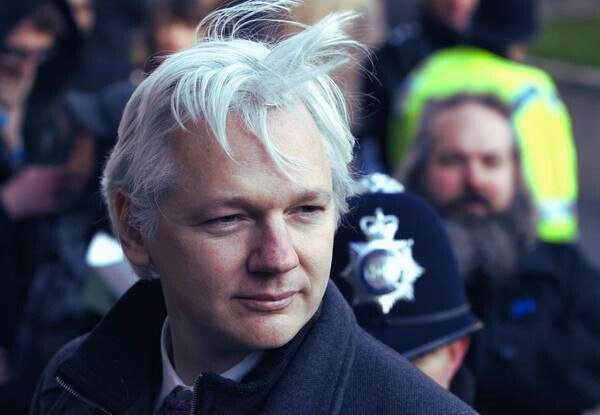Contents

Background and Overview of the Plea Deal
Julian Assange, the founder of WikiLeaks, has been embroiled in legal battles for over a decade. His saga began in 2010 when WikiLeaks published classified U.S. military and diplomatic documents, leading to a global controversy. Assange initially faced charges of sexual misconduct in Sweden, which were later dropped, but his most pressing legal issues stemmed from the U.S., where he was indicted on multiple counts, including espionage and hacking.
Assange’s legal troubles intensified in April 2019 when he was arrested by British authorities after being expelled from the Ecuadorian Embassy in London, where he had sought asylum since 2012. His arrest was based on a U.S. extradition request, which sought to bring him to trial for his role in the publication of classified information. The charges included 18 counts, with the most severe being violations of the Espionage Act, which could have resulted in a lengthy prison sentence.
In a significant development, Assange recently reached a plea deal with the U.S. Department of Justice. The plea agreement, which is seen as a pivotal moment in his legal journey, allows him to avoid a potentially harsh prison sentence. The conditions of the plea deal are not entirely public, but it is understood that Assange has agreed to plead guilty to a lesser charge, which will significantly reduce his potential prison time. This agreement marks a major turning point, as it not only mitigates his legal jeopardy but also addresses a contentious chapter in the ongoing debate over press freedom and the role of whistleblowers.
The plea deal’s significance cannot be overstated. For Assange, it represents a path forward, potentially allowing him to avoid spending the rest of his life behind bars. For the U.S. government, it concludes a protracted and polarizing legal battle. Observers are keenly watching to see how this resolution will impact future cases related to the publication of classified information and the broader implications for journalism and transparency.

Julian Assange’s Time in UK Prison
Julian Assange’s arrest at the Ecuadorian embassy in London marked a significant turning point in his life and the history of WikiLeaks. On April 11, 2019, British authorities forcibly removed Assange from the embassy, where he had sought asylum since 2012. His arrest followed Ecuador’s revocation of his asylum status, citing his alleged violations of asylum conditions. Assange was subsequently charged with breaching bail conditions in the UK, which stemmed from an earlier extradition request by Sweden over sexual misconduct allegations that had since been dropped.
Assange’s incarceration at Belmarsh Prison, a high-security facility in London, began in earnest following his arrest. During this time, he faced extradition proceedings initiated by the United States, where he was charged with conspiracy to commit computer intrusion, among other offenses. These charges were linked to WikiLeaks’ publication of classified documents that exposed various governmental activities. Throughout his time in prison, Assange’s legal team engaged in numerous battles and appeals, arguing against his extradition on the grounds that it would violate his human rights and expose him to harsh prison conditions in the US.
Life inside Belmarsh Prison proved to be a harsh reality for Assange. Reports from his legal representatives and human rights organizations highlighted concerns about his physical and mental health. Assange was said to have experienced prolonged solitary confinement, which exacerbated pre-existing health conditions, including respiratory issues and severe psychological stress. These conditions led to widespread calls from activists, medical professionals, and international bodies for his release on humanitarian grounds.
Throughout his imprisonment, Assange’s legal team worked tirelessly to contest the extradition, highlighting the potential impact on press freedom and the precedent it would set for future journalistic endeavors. Despite these efforts, the legal process was fraught with complexities and delays, prolonging his stay in the UK prison system and increasing the toll on his well-being.
Implications of the Plea Deal
The plea deal reached by Julian Assange, founder of WikiLeaks, carries significant implications for various sectors, including the legal landscape for journalists and whistleblowers. The agreement has sparked a broad conversation about the boundaries of investigative journalism and the legal protections available to those who expose sensitive information. Assange’s plea deal could set a precedent that might either strengthen or undermine the legal safeguards for journalists, depending on its interpretation and application in future cases.
For WikiLeaks, the plea deal marks a pivotal moment. The organization has been a controversial entity since its inception, often polarizing opinions on transparency and secrecy. The deal could lead to increased scrutiny and regulation of similar platforms that publish classified information. Supporters of WikiLeaks argue that such platforms are essential for holding powerful entities accountable, while critics contend that the uncontrolled dissemination of sensitive material poses a risk to national security and international relations.
Reactions to the plea deal have been diverse. Supporters of Julian Assange see the agreement as a victory for freedom of the press, believing it to be a step towards protecting journalistic endeavors from punitive legal actions. Critics, however, view the deal as potentially dangerous, fearing it may embolden other whistleblowers to release classified information without considering the ramifications. This dichotomy highlights the ongoing debate over the balance between transparency and security.
Geopolitically, Assange’s plea deal has ramifications for US-UK relations and international perspectives on press freedom. The UK, which has been involved in Assange’s extradition proceedings, may face diplomatic pressures and criticisms based on the outcome of the deal. Internationally, the plea deal could influence how other countries view and handle cases involving journalists and whistleblowers. It may serve as a benchmark for evaluating the extent to which governments are willing to protect or prosecute those who divulge classified information for public scrutiny.
What Lies Ahead for Julian Assange?
With Julian Assange reaching a plea deal to avoid prison in the United States, his future trajectory remains a topic of considerable speculation. The agreement marks a significant development in Assange’s long-standing legal battles, but it does not necessarily signal the end of his challenges. Moving forward, several factors will shape his path, from legal restrictions and public opinion to his health and professional aspirations.
One of the immediate questions is whether Assange will continue his work with WikiLeaks or pivot to new ventures. WikiLeaks, a platform known for its groundbreaking disclosures, has been at the center of numerous controversies and legal issues. Should Assange choose to maintain his association with WikiLeaks, he may face severe scrutiny and additional legal barriers. Alternatively, he might opt to leverage his expertise in other areas of journalism or digital security, fields where his influence remains significant.
Legal constraints are likely to persist as a central concern. Assange’s plea deal might include conditions that limit his activities, travel, or communication. These restrictions could impact his ability to engage in journalistic endeavors or public advocacy. Additionally, ongoing legal proceedings in other jurisdictions, such as Sweden, could pose further hurdles. Navigating these legal landscapes will require careful strategizing and robust legal support.
Public perception of Assange also plays a crucial role in determining his future. While some view him as a champion of transparency and free speech, others see him as a controversial figure whose actions have jeopardized national security. This polarized public opinion could influence his opportunities and the extent of support he receives from various communities and institutions.
Assange’s personal health is another pivotal factor. Years of confinement in the Ecuadorian embassy and subsequent incarceration have taken a toll on his well-being. Ensuring his recovery and managing any ongoing health issues will be essential for his continued engagement in any professional or advocacy-related activities.
Reflecting on Assange’s legacy, it is undeniable that his work has left a lasting impact on journalism and the transparency movement. WikiLeaks has redefined the boundaries of investigative journalism, emphasizing the importance of holding powerful entities accountable. As Assange navigates his post-plea deal future, his contributions will continue to spark debate and inspire future generations of journalists and activists.
OUR SITE : toinewsalert.com
